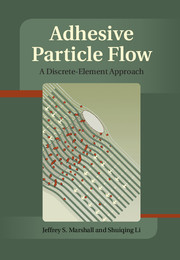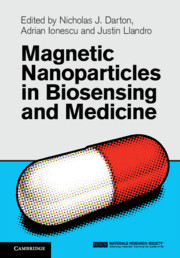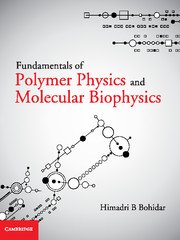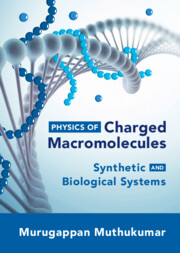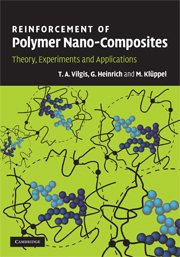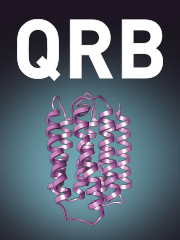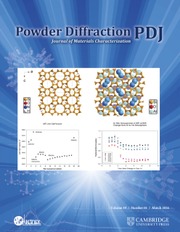Molecular Forces and Self Assembly
In Colloid, Nano Sciences and Biology
£98.99
Part of Cambridge Molecular Science
- Authors:
- Barry W. Ninham, Australian National University, Canberra
- Pierandrea Lo Nostro, Università degli Studi di Firenze, Italy
- Date Published: April 2010
- availability: Available
- format: Hardback
- isbn: 9780521896009
£
98.99
Hardback
Other available formats:
eBook
Looking for an inspection copy?
This title is not currently available on inspection
-
Challenging the cherished notions of colloidal theory, Barry Ninham and Pierandrea Lo Nostro confront the scientific lore of molecular forces and colloidal science in an incisive and thought-provoking manner. The authors explain the development of these classical theories, discussing amongst other topics electrostatic forces in electrolytes, specific ion effects and hydrophobic interactions. Throughout the book they question assumptions, unearth flaws and present new results and ideas. From such analysis, a qualitative and predictive framework for the field emerges; the impact of this is discussed in the latter half of the book through force behaviour in self assembly. Here, numerous diverse phenomena are explained, from surfactants to biological applications, all richly illustrated with pertinent, intellectually stimulating examples. With mathematics kept to a minimum, and historic facts and anecdotes woven through the text, this is a highly engaging and readable treatment for students and researchers in science and engineering.
Read more- Presents new developments in the discipline and describes their impact on applications in chemical engineering, nanosciences, biotechnology, and biological sciences
- Avoids complex mathematical formulae so the content is accessible to non-technical readers
- Useful summaries and extensive referencing provide information on the most relevant discoveries in the last 100 years
Reviews & endorsements
'Full of wisdom gained from a wealth of experience. … a good deal of charm weaves its way through the fabric of the presentation.' Gerald Pollack, Bioengineering, University of Washington
See more reviews'Very few books have changed a field to such a level that they define a new paradigm. I consider that this book has done so.' Kåre Larsson, Camurus Lipid Research Foundation, Ideon Science Park and Lund University
'Molecular Forces and Self Assembly is anything but boring. The book's erudite and engaging presentation deftly weaves in the results of eminent scientists from Isaac Newton to Lars Onsager and sheds light on how disparate physical laws are glued together in contemporary theories. The authors even mix in some humor … Even experimentalists … have something to learn from the book's dissection of theory … Molecular Forces and Self Assembly is best taken as a missive from one generation of soft-matter scientists to the next that there is still much to be questioned and understood about complex fluids.' Physics Today
Customer reviews
Not yet reviewed
Be the first to review
Review was not posted due to profanity
×Product details
- Date Published: April 2010
- format: Hardback
- isbn: 9780521896009
- length: 362 pages
- dimensions: 253 x 179 x 20 mm
- weight: 0.9kg
- contains: 97 b/w illus. 15 tables
- availability: Available
Table of Contents
Part I. Molecular Forces:
1. Reasons for the enquiry
2. Different approaches to, and different kinds of molecular forces
3. Electrostatic forces in electrolytes in outline
4. The balance of forces
5. Quantum mechanical forces in condensed media
6. The extension of the Lifshitz theory to include electrolytes and Hofmeister effects
7. Specific ion effects
8. Effects of dissolved gas and other solutes on hydrophobic interactions
Part II. Self Assembly:
9. Self assembly: overview
10. Self assembly in theory and practice
11. Bicontinuous phases and other structures: forces at work in biological systems
12. Emulsions and microemulsions
13. Forces at work: a miscellany of issues.
Sorry, this resource is locked
Please register or sign in to request access. If you are having problems accessing these resources please email [email protected]
Register Sign in» Proceed
You are now leaving the Cambridge University Press website. Your eBook purchase and download will be completed by our partner www.ebooks.com. Please see the permission section of the www.ebooks.com catalogue page for details of the print & copy limits on our eBooks.
Continue ×Are you sure you want to delete your account?
This cannot be undone.
Thank you for your feedback which will help us improve our service.
If you requested a response, we will make sure to get back to you shortly.
×

